Hooked on podcasts? So am I. Unfortunately, I have struggled to find a podcast related to my profession and passion: urban design. Thankfully, DeepRoot has stepped in and created Remarkable Objects.
Remarkable Objects, hosted by Leda Marritz, Creative Director at DeepRoot, is a new podcast about the intersection of nature and urban design. In each episode, we will hear from leaders and innovators whose work aims to influence the way we think about, design, and build the urban environment.
In the first episode, Barbara Deutsch, the Executive Director of the Landscape Architecture Foundation (LAF), makes a case for quantifying the benefits of landscape design. LAF is a nonprofit organization dedicated to investing in the profession through research, scholarship, and leadership programs. Deutsch is working to advance the public’s understanding of what landscape architects do and the benefits their designs provide. For the past six years, Deutsch and her team have been developing the Landscape Performance Series (LPS), a collection of over 100 case studies from projects around the United States.
This initiative aims to transform the way landscape is considered in the development process by measuring the effectiveness, and showing the value of sustainable urban design. Deutsch states that the Landscape Performance Series came about as a method for landscape architects to “show the value of what you do in order for others to be more open to receiving it or to value it.” By quantifying the benefits provided by landscape elements, we are able to express how landscape design is contributing to a project’s environmental, social, and economic ambitions. Deutsch urges designers to think beyond the aesthetic and functional value of landscapes, to larger goals of sustainability.
The program has defined a set of methods and metrics to quantify landscape benefits and their value. For each project, research is gathered, quantified, and a case study is written about the practices that did and did not work as anticipated. Information is shared publicly on the LPS website, which has become a robust resource of content. The case studies provide designers and policy makers with persuasive, research-driven evidence of the value of investing in the landscape.
The endeavor has not come without setbacks, however. Deutsch addresses the issues she has come across, such as the lack of time or data collection tools available to practitioners. Furthermore, the spatial and temporal nature of landscape design makes benefits difficult to quantify. Landscapes will evolve and change over time, making the interpretation of data challenging. Nevertheless, Deutsch asserts that the Landscape Performance Series is transforming the practice with the predicted and actual performance data collected. “The process of evaluation is for self-improvement…and since the landscape is always changing you always want to go back and check so you can see how you can do it better next time or how you need to adapt [the existing design].” By measuring the performance of landscapes, we are better prepared to find the best and most sustainable solution for projects in the future.
As LPS further progresses, they plan to develop more case studies on varying topics such as transportation, and to develop long-term studies that track a project’s performance over a full year or longer. As the body of knowledge related to landscape performance grows, it will inform public policy, reduce investor risk, and improve return on investment. Landscape architects are equip to solving sustainable challenges, and building a consistent body of knowledge will help to make the case for more sustainable landscapes. As Deutsch says, “This is the age of landscape architecture. This is the time when the world needs what we have to offer.”
Remarkable Objects will air every-other Wednesday for the course of the eight-episode season. Check back in two weeks: I will be providing reviews of each episode, as part of the Deep Root and Land8 partnership.
Listen to the first episode here, and subscribe on SoundCloud or iTunes.
Published in Blog

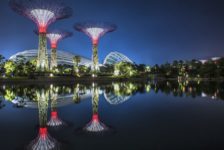
![From Bagels to Sea Level Rise: Landscape Architects Adapt to Climate Change [Podcast]](https://land8.com/wp-content/uploads/2017/12/171021-081734-NNT-8843-XL-224x150.jpg)
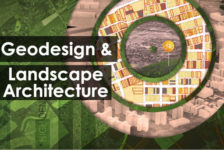
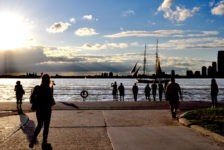

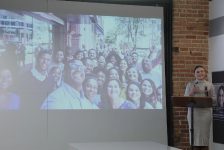
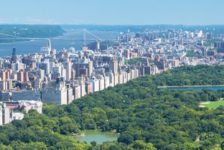
Jacky Wah
Nice post! Besides 99% Invisible,which is a podcast about all design professions, I think Remarkable Objects can be a good podcast down the road for our profession.
Thanks for blogging this. 🙂
Doug Davies
Great article, we all are podcast-heads!